|
By Manuel Players: 1 Platforms: Nintendo Switch (Hong Kong eShop Only), PC (GoG) Today we're going to be taking a look at the dungeon crawling JRPG, Tokyo Clanpool. Previously only available on the PlayStation Vita in Japan, it's now getting an official US release. Tokyo Clanpool is developed by Compile Heart, and this new version comes to us by way of publisher EastAsiaSoft. There's a lot to talk about regarding exactly how it got here, but we'll leave that for later. What's important now are the platforms you can currently play it on. If you're a PC gamer, you can get it on GOG rather easily, but things get a bit more complicated if you want to play it on the Nintendo Switch. Playing it there means you'll either have to get yourself a physical copy, or you'll have to head over to the Hong Kong Switch eShop and pick it up there. I'll get into that later on too, but suffice it to say that this is going to be a difficult game to talk about. I actually delayed this review for weeks since I wasn't sure how to approach it. Anyhow, we're going to be looking at the Switch version here, though I'm sure the GOG release is comparable. This is going to be a long one, so let's just get to the review already! Story Tokyo Clanpool has one of the strangest premises I've ever seen in a game, and I'm at a loss as to how I'm even going to explain it in a few sentences. Sometime in the future, a giant tower descends on the Diet Building in Tokyo. They are woefully unprepared for this new threat, and have to scramble to come up with a plan that doesn't lead to total destruction. Heading up Tokyo's defenses is the newly-elected Prime Minister, Natsume Kannuki. She's not alone in this though, as she has the entire Government of Japan behind her. These aren't no stodgy old politicians though, this version of Japan's government is composed solely of cute anime girls! Though some members of Natsume's cabinet operate in support roles, three members join her in a team that is dubbed the Diet Dolls. These Diet Dolls are the only ones truly powerful enough to take on the monsters that come from the tower, and are essentially Tokyo's last hope. Little is known about the purpose of the tower, but that's about to change. Not long after the game starts, a message is relayed to the Diet Dolls. A mysterious figure known as Isperica claims, who claims to be the right-hand man of The Dark Queen of the Dark Realm, declares his intent to complete their conquest. Suddenly the stakes are risen, and this is now a battle for Earth itself. The Diet Dolls have no choice but to declare war, and they take the fight directly to the tower in the hopes of learning more about the enemy. Even though I'd stop with the plot description around there no matter what, I'd also be lying if I said that I had a firm grasp of what happens beyond that opening premise. There are more revelations and twists later in the game, but it's clear that plot isn't the main focus of this game. Besides an emphasis on gameplay, there's also a large emphasis placed on the characters and their relationships to one another. I was surprised to find that there were several, very long, story scenes that they very rarely had much to do with the core plot. This can be seen as a positive or negative depending on how one views such things, but I for one felt that it padded out a story that was very thin at its core. It doesn't help that the plot is told in a visual novel format. I'm a big fan of the genre, but it can get old having to look at static images talking to each other for several minutes on end. This is a JRPG after all, and there is an excessive amount of dialogue that just seems to go nowhere. This isn't to say that I didn't like the characters, it's just that none of them ever really grew on me to the point where I cared about their backstories or character development. The game does try really hard to make you care for them, but the anime tropes were just too much for me here. Having said all that, I don't think that Tokyo Clanpool doesn't have a story worth experiencing, it's just that it's one that isn't all that memorable at the end of the day. Gameplay Compile Heart has a long history of developing dungeon crawlers, so it's no surprise that Tokyo Clanpool falls into the genre. The dungeon you'll be exploring in-game is the tower that connects the Diet Building to Reverse City above. Each floor of the dungeon is made up of several spaces on a 32x32 grid, with your party moving through it via a first-person perspective. Several icons indicate if there are story events, treasures, switches, and other obstacles, and your goals change depending on what's going on in the story at any given time. Simply surviving the dungeon is more than enough, but boss monsters often guard the exits of key floors. Random battles can also occur with any step the party makes. Those aren't the only dangers though, as traps and pitfalls can put a damper on exploration. Though it is easy to get lost in the dungeons, you're equipped with a map that fills itself in as you progress. This map also allows you to fast-travel option to areas you've already seen. Though this is very helpful in getting back to where you were on subsequent runs, it doesn't stop random battles from occurring. Lastly, there are several skills that you can use to create shortcuts in the dungeon, get the party over large pits that block your path, or even access areas that seem to be locked off. The latter skills, which the game calls apps, are probably outside of the scope of this review, but suffice it to say that there's a lot of minutiae when it comes to the dungeon crawling aspect of the game. There's actually a lot of minutiae in just about every bit of Tokyo Clanpool. If you thought the dungeon crawling sounded intense, wait till you get a load of the combat system. Be they boss battles or basic, enemy encounters take place in a turn-based fashion. Even though you can technically attack or use skills as you wish, each move requires the use of ether. Ether is essentially this games version of action points, and each action you take in combat uses up some amount of ether. This doesn't necessarily mean that you'll find yourself unable to attack if you run out, but it does sometimes limit what you can do on a particular turn. Attacking and using skills isn't exactly simple either, as there's also a big emphasis on elemental-based attacks. Not only are offensive and defensive stats adjusted if you have the correct element equipped, but you're also able to perform special moves if you've equipped the proper elemental gear and skills. Chief among these special moves is the ability to fuse with your equipped Gadgettia. Gadgettia are too complicated to explain here, but they're equippable partners which operate in a way similar to the demons in the Shin Megami Tensei series. The special form you take on through this fusion has increased stats and increased ether, and opens up even more skills to you. That's not all though, as you can also perform combo moves with other party members too. This requires the correct combination of skills, and a little luck regarding if they'll come one after the other. Winning battles can net you items and equipment, but you also gain experience for both your party members and your Gadgettia. Experience means level ups, and those operate as you'd expect from other JRPGs. You can also run from battles, but that can hurt your Approval Rating. What's an Approval Rating you ask? Well, that's Tokyo Clanpool's special way of judging your performance in any dungeon run. Throughout the course of the game, your actions are being livestreamed to your constituents. It seems like democracy has gone extreme in future Tokyo, as these viewers actively vote on whether or not they like what they are seeing during the livestream. Picking up treasure, winning battles, defeating bosses, and other positive activities will raise your Approval Rating. Running from monsters, falling into traps, or performing badly in combat, all make your Approval Rating go down. Certain plateaus in the Approval Rating grant bonuses like increased stats and item pickups, and it also affects the monetary reward you get at the end of your current run. That's right, most of the money you acquire in-game is given to you in the form of donations. Completing the dungeon also triggers a special vote which essentially determines the MVP of the current run. The winner of that election gets an experience bonus, and the Approval Rating resets for your next visit to the dungeon. I know everything I just said may sound extremely complicated, but there's a big secret to Tokyo Clanpool that I'm going to reveal now: You can literally ignore most of these systems and just play the game. You can master the art of fusing Gadgettia to create the one perfect for each party member, only equip armor that matches your chosen element, or equip a digiskin that corresponds with the monsters you're likely to be facing, or you can just choose to not bother with any of it. I tried out most of the systems because I was reviewing the game, but the low difficulty made it so I rarely had to bother with anything beyond the basics. Most monster encounters can be cleared by simply attacking until they're dead, and you can get through the game by simply equipping whatever gives you the biggest stat bonuses. Besides the first couple floors of the dungeon, I never bothered with things like fusing Gadgettia, or looking twice at a character's element, and I was fine. There are a few times when the game throws a sudden difficulty spike at you, but these are few and far between. As long as you don't over-extend yourself, you can simply power through the game without having to understand half of what makes up the game. All this essentially made Tokyo Clanpool feel like it was complicated simply for the sake of being complicated. You're given tutorial after tutorial in your first few hours, and it's ridiculous how little they actually matter as far as beating the game goes. It may sound like I didn't enjoy Tokyo Clanpool all that much, but that's not actually the case. It may be overly padded with useless gameplay mechanics, but I'm a sucker for dungeon crawlers. Tokyo Clanpool reminded me a lot of games like Wizardry or The Labyrinth of Zangetsu, though both of those games feature much simpler gameplay. Needlessly complicated or not, the dungeon crawling aspect really kept me locked in. I played for far longer than I intended to initially, and would often go out of my way to perfect each floor of the dungeon. There's nothing more rewarding than a fully filled map, and I sure got my fill here. There's also a randomness to exploring that I found really neat. Each time you re-enter the dungeon, chests and previously dug tunnels respawn. This not only allows you to get more loot, but it also means that the game pretty much never stops being replayable. I will admit that the drawn-out dialogue scenes sometimes took away from the fun I was having, but they weren't so bad that it ever made me stop playing. I'd also be lying if I said that defeating some of the monsters and bosses wasn't fun too, even if the stakes never felt too high due to the overall low difficulty. If the combat was toned down and simplified I'd have enjoyed it a lot more, but it was fun for what it was. If the game was solely the dungeon exploration part, I'd probably be giving it amazing scores, unfortunately there's an entire other aspect of the game we have to discuss before moving on. Controversy Now I don't know the full details as to why Tokyo Clanpool had so much trouble on its path to release, but I do know that it was originally announced for both Steam and the NA Switch eShop around summer 2024. This makes sense as both platforms have spent the last few years not really interfering with content released on their platforms, while companies like Sony have been reversing their previously lenient stance on ecchi content in games. I sort of danced around it until now, but there is a decidedly ecchi theme to the game. This is by no means something akin to hentai, but there was probably a reason why the game too all these years to come to the west. Either way, at some point before its release the Steam version became a GOG one, and the Switch version had to be moved to the Hong Kong Switch eShop. (I think the shop may be for other SEA regions too, but I created my account using HK specifically.) This caused a bit of a stir among those who were waiting for the game, and probably did a decent amount of harm to its sales both then and now. This was always going to be a niche release, but now it was going to be all the harder to even play. The big question you might be asking yourselves is why Tokyo Clanpool was apparently banned from the mainstream platforms for which it was originally announced. Surely it doesn't have content that goes beyond your typical ecchi-themed game, right? ... Right? Before I continue, let me state that there are indeed games on the Switch right now that have far more mature content and fan service-y themes in them than Tokyo Clanpool. Some of them have even been published by EastAsiaSoft in the past. Having said that, I can actually somewhat understand why this game might have been deemed too risqué for a full NA release. Beyond the usual anime stuff of questionable ages and overall lewd content, there's the character of Hotaru. The idea of the smallest, youngest-looking character being the Minister of Defense might be a funny idea on paper, but it comes off odd in execution. There's a word to describe characters like her, but I don't want to use it here. Suffice it to say that it also is used in the world of fashion, and begins with the letter "L". There wasn't a single point of my playthrough where I wasn't cringing at least a little whenever Hotaru was on screen. She was clearly designed to appeal to a certain type of player, and that type of player isn't me. She looks extremely young and you can dress her up in all sorts of outfits that make me feel like I should delete the game from my Switch and burn my SD card. Questionable design decisions aside, there's a lot of sexual innuendos directed towards her in dialogue, and all sorts of other stuff that surprised me wasn't just left out of localization entirely. I know this might come off as me sounding prudish, but it really can be a bit much, and her presence actually is what ultimately made me give up on playing the game after almost being won over by the dungeon crawling gameplay. I'm not saying her presence is the sole reason this game was probably denied release, but I can say that I 1,000% understand why it would be chief among a myriad of other reasons. This my all seem rather random, and it probably is, but I couldn't think of anywhere else to mention all this, and it really soured the game for me. Before anyone cries foul over me basically calling for censorship, let me also point out that this release is already censored from its original 2017 release. Similar to Monster Monpiece and Moero Chronicle, there is a rubbing minigame that you can perform to unlock new abilities in each of the Diet Dolls. Though the beginning and after of the minigame is left intact, the actual act of rubbing the girls has been removed. I'm not sure if this was done pre-emptively to hopefully not get banned by Steam and Nintendo, or if maybe the developers had a change of heart regarding it in the eleventh hour, but you'll have to go elsewhere if you want that rubbing minigame. Honestly, I probably would've quit the game then and there if I was made to rub Hotaru, so I'm glad that it's gone. It is really odd that they left in the tutorial for the minigame though, as it seems like you're going to still do it, and then you just don't. I have bring this whole thing up for two reasons. One, the rubbing minigame being removed implies that someone on the localization side of things was totally aware how it all looked in the first place. Considering that other games have been released with said minigame attached, I'm willing to bet they saw issue with having it include a character like Hotaru. Second, I can't help but wonder who this game is actually for now that I know of this censorship. I'm glad that they took it out, but why censor something that was already only going to appeal to a niche of a nice of a niche? The same people who are probably upset that I think the game shouldn't have included Hotaru at all, are probably also the ones who would be upset upon learning that the rubbing minigame was removed. I get that things had probably progressed to the point where the game just had to come out, but I can't help but wonder if the effort should've been put in at all in the first place. Graphics Let's move on to something far lighter. I'm probably not alone in having heard fans of the PS Vita claim that the Nintendo Switch is its big successor. Prior to the recent censorship controversy that surrounds this game, it was THE console to put your niche JRPG on without having to sacrifice content. Games like Omega Labyrinth Life and Moero Chronicle thrived, as did other games that were previously only available on the Vita. It held that position for years, as the Vita quietly faded into the night, and only now is starting to lose that spot as Nintendo has grown more careful regarding content. Besides the fact that Tokyo Clanpool started life as a Vita game, I bet you're wondering where I'm going with all of this. It's mainly due to the fact that I'm at a loss yet again as to how to cover an aspect of Tokyo Clanpool. This time it's the graphics, as they have a look to them that is hard to put into words. I guess you can say that it's sure to please fans of Sony's ill-fated handheld, because there seems to have been little work done to it in the years between its two releases. To be fair, no one ever claimed that this was ever going to be a "remastered" version of the game, but you sort of expect it due to the time and platform changes. I'm sure there are plenty of people who don't even know it of its origins, and assume it's just a new JRPG coming out in the west. Even if I were one of those people, my first reaction to this game's visuals would probably be something like "Wow, this looks exactly like a game for the Vita!" I don't want to make it seem like the graphics or art style are ugly, but it looks like someone took HD screens from a portable console and blew them up to fit on an HD resolution. I have no way to really explain it, but the small details you get in games that are designed specifically to be on home consoles just aren't there. The character and monster designs are good for the most part, but they look like plain in a way that can only be ignored if you're playing on a tiny screen. I guess one could play their Switch in Handheld Mode to get around this general feeling, but that doesn't help those playing on PC. I know this is a rather hard concept to explain, and I'm probably doing it poorly, but you can probably tell from the screenshots that it doesn't look like a modern release. It doesn't even compare with recent stuff put out by Compile Heart today. It's by no means a deal-breaker, but it does give the game a fairly bland look. I'd probably be willing to forgive the blandness of the visuals if it were for the game's overall presentation, which I found to be lacking. Most of the game is presented to you in a static form, with pretty much no animation or background designs. Dialogue takes place with visual novel-style cutscenes that have practically no animation beyond the characters flipping from one side to the other, and all actions in the hub area are done via a system of menus. Even combat looks boring as it's also a single screen that has walls of text telling you what's going on. It's not an ugly game, but it feels like a lot of stats and numbers with a handful of anime pictures tossed on top to distract everyone. This extends to the dungeons too. These are the only places where you'll be able to control your party directly, and you'd be forgiven for forgetting what game you're actually playing. There would be sessions where I'd be lost in the dungeon and totally forget that I was playing a game that is full of anime trappings. Each dungeon is pretty much a collection of similar-looking hallways and rooms, and none of them really share a visual style that ties in with everything else in the game. I wouldn't be surprised to learn that the dungeon exploration part of the game was designed without any input from the team working on the character and monster illustrations. Perhaps this visual style is an acquired taste that I don't have, but I was mostly indifferent to it nonetheless. Music/Sound Thankfully there's one aspect of Tokyo Clanpool where I think I can get my opinions out concisely, and not turn it into a paragraphs long discussion. Tokyo Clanpool features the usual mix of music you'd expect in a game like this, and I mean that in a mostly positive way. Upbeat, largely forgettable, tracks make up much of the soundtrack, with other styles being thrown in when needed. Happy-sounding themes are used when in the Diet Building, foreboding ones are used for the dungeons, and blood-pumping ones help move along the frequent battles. It's a great collection of music that leaves me with nothing truly negative to say. It may not be music that stuck with me after I was done with the game, but it also never got on my nerves. The soundtrack may be above and beyond the typical run-of-the-mill JRPG, but it mainly just exists, and that's fine. Things fare a bit better as far as voice acting goes, though I also don't have strong opinions on that front either. There's no dub track here, but it goes without saying that I wasn't expecting one considering this game's under-the-radar release. That said, the Japanese voice actors all give amazing performances, and fans of such things are sure to recognize many names in the cast. The sound design is just solid overall, with even the sound effects being done well. I may have the least to say about this one part of the game, but I don't think that's a bad thing considering how this review has been going so far. Value At the time of this writing, the only easy way to pick up Tokyo Clanpool in the US is via GOG. It's also available on the Hong Kong Switch eShop, but I have no real idea what its pricing is there in terms of exchange rate. You'd also have to make special arrangements to purchase it, such as getting a digital gift card from a third party, since paying with a US credit card can be problematic. Considering you have to go through such extremes to get your hands on the game, I feel bad picking it apart more than I already have. Thankfully, I can say that its current asking price of $39.99 feels more than far. There's a lot of game here to sink your teeth into, and it even has all the previously released DLC included too. If not for the censorship mentioned before, it might even be considered something of a definitive version of the game. This is a long, 50+ hour game that is sure to take a hold of you if you're able to look beyond the aspects that ultimately made me throw in the towel. It's also highly replayable, as there are multiple difficulty settings to try out, and plenty of secrets to discover. Even though I'm not exactly Tokyo Clanpool's biggest fan, and I'm pretty sure I won't pick the game up again once I'm done with this review, I do think that players will get their money's worth if they're willing to go jump through a couple hoops in picking this one up. Conclusion I guess it's time to give my final thoughts on Tokyo Clanpool. I personally found parts of it to be absolutely insufferable, but the parts I enjoyed far outweighed the things that made me give up on it. Its content makes it so that most people will know right away if this is a game for them. Some will pick it up due to the controversy alone, and to support its release, and I'm all for that. Others will probably stay away because it still looks fairly generic despite all the press it's received, and I'm all for that too. It really isn't a bad game by any stretch, and there's plenty of fun to be had here if you're more accepting of its content than I was. I just wish it had come out without all the fuss. It probably would've just been another anime-themed dungeon crawler, but at least it wouldn't require extra steps in picking it up. I guess grab it if you're a fan of the Genkai Tokki series, and if you don't know what that is, then you're probably fine in skipping this one. Either way, I think that's enough from me. See you in the next one! For More Information on Tokyo Clanpool: https://www.eastasiasoft.com/games/Tokyo-Clanpool Story: B Gameplay: B- Graphics: B Music/Sound: A- Value: A Overall: B Pros: + A great dungeon crawling JRPG that has a lot of depth to it too. + The premise is just wacky enough that it is sure to appeal to a lot of anime fans out there. + Though there is a definite ecchi-ness to everything, the character and monster designs are all well-done. + The music is strong throughout, and the voice acting is great too. + Comes with all the DLC from its previous release, and can probably be considered something akin to a "definitive" version of the game. + There's a lot of content here for just $39.99. + With loads of secrets to find, and other difficulty settings to try out, this is a highly replayable game. +/- Whether I personally like the game or not, I commend EastAsiaSoft for sticking to getting this one released. Cons: - Though the game features a lot of complicated systems, the low difficulty means that you can essentially ignore just about all of them. - You'll have a bit of a hard time picking this up anywhere but GOG, as the Switch release isn't easily available. - I personally found the character of Hotaru to be quite off-putting, and it's probably one of the reasons why the game saw such a difficult release. - Despite being denied release on the original announced platforms, there was already censorship in the game. Though I am for it in this case, I can see how this might upset others. - This is a fairly generic dungeon crawler that probably wouldn't have gotten any real attention if not for the controversy surrounding its release. A copy of this game was provided to us free-of-charge by the publisher for the purpose of this review. This did not affect our review in any way.
0 Comments
Leave a Reply. |
Search
Contributors◆ Angie
◆ Emily ◆ J.D. ◆ Janette ◆ JT ◆ Manuel ◆ Nestor ◆ Rose ◆ Sylvia ◆ Teepu ◆ Tiffany ◆ Winfield Archives
July 2025
|
© 2014-2025 A-to-J Connections. All Rights Reserved.

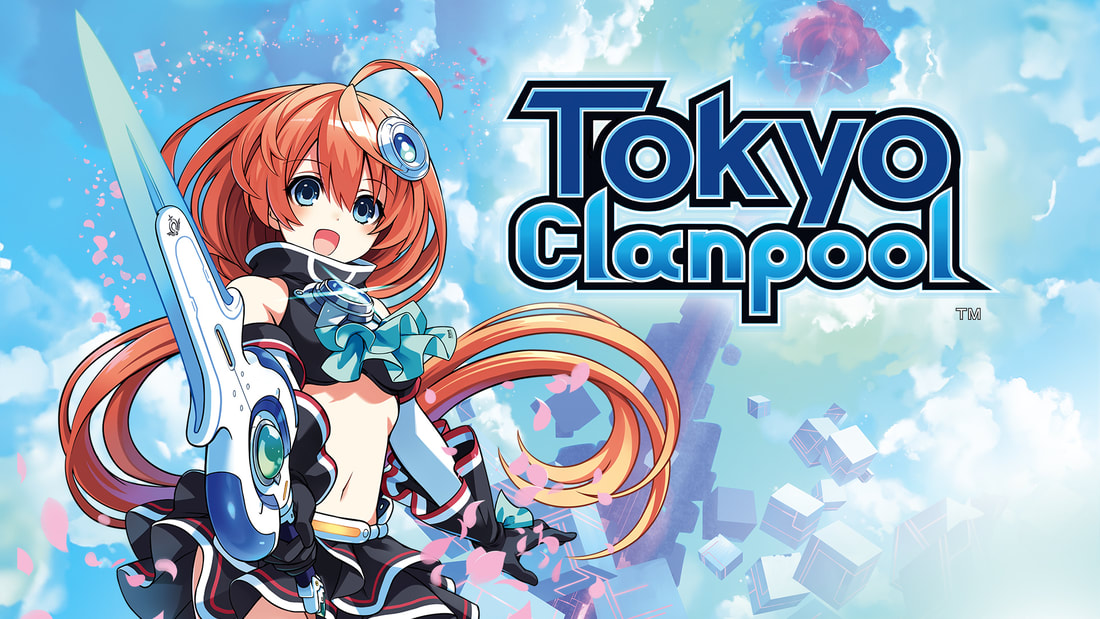
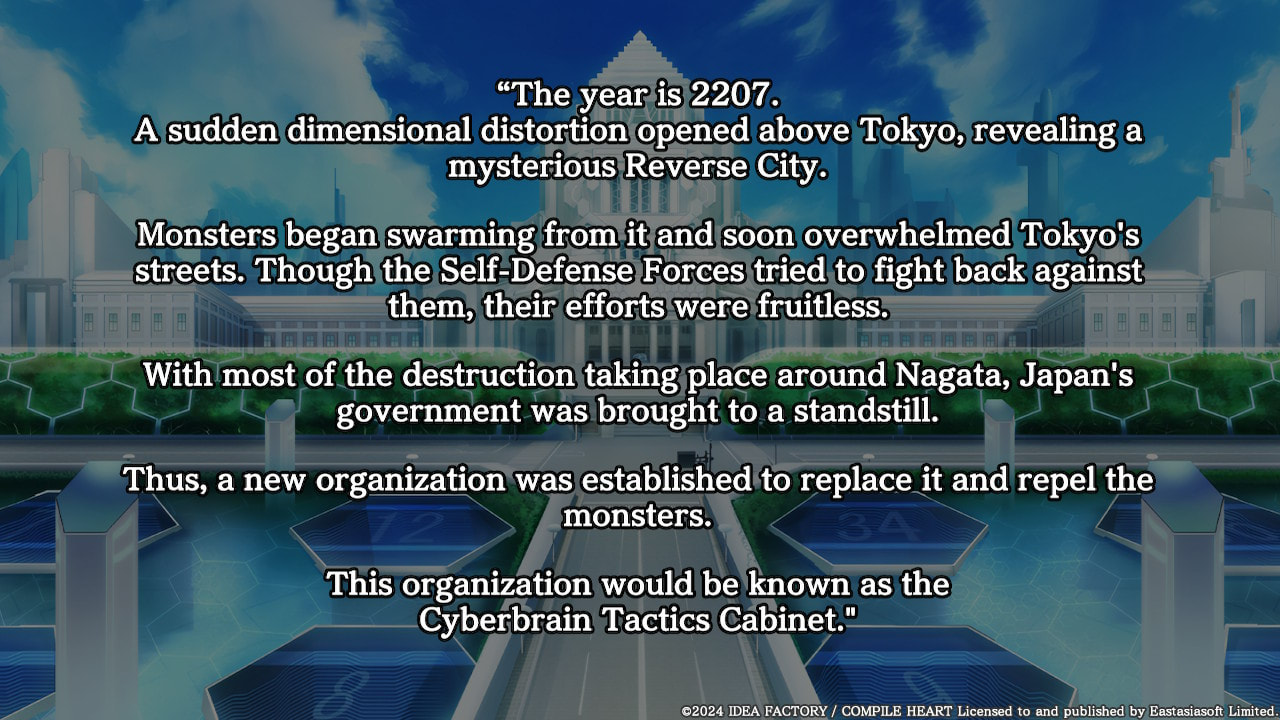
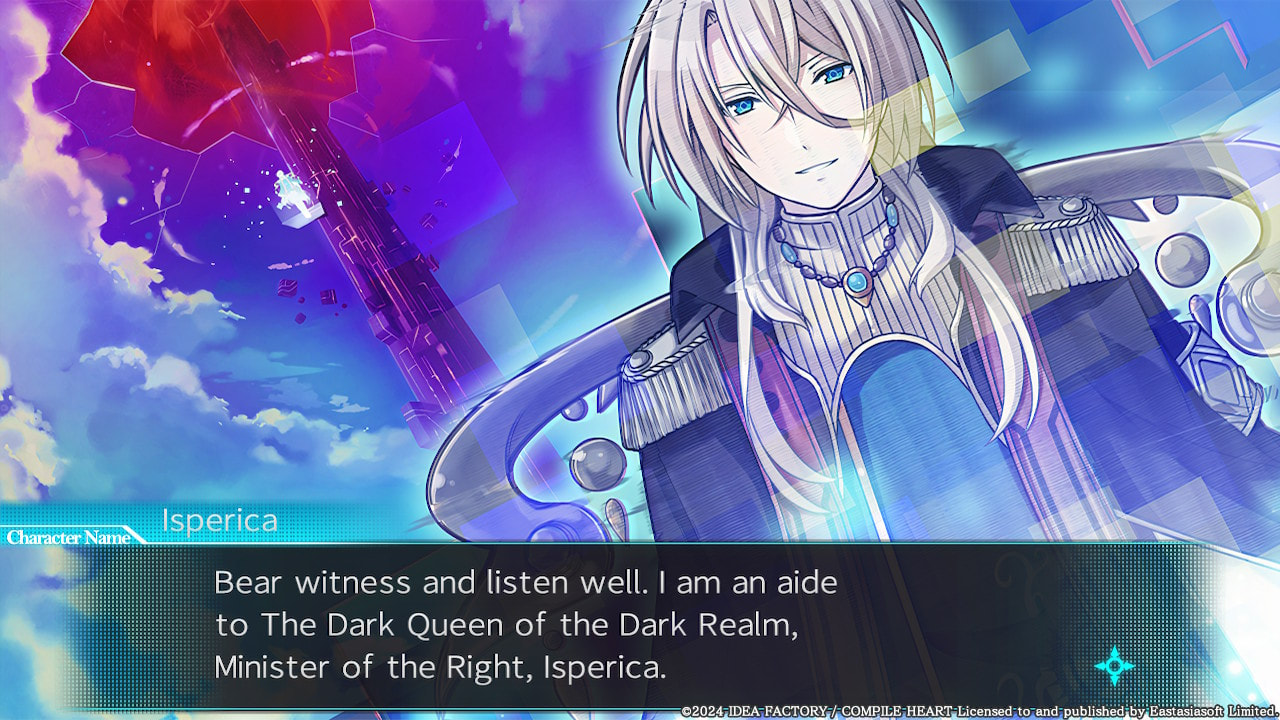
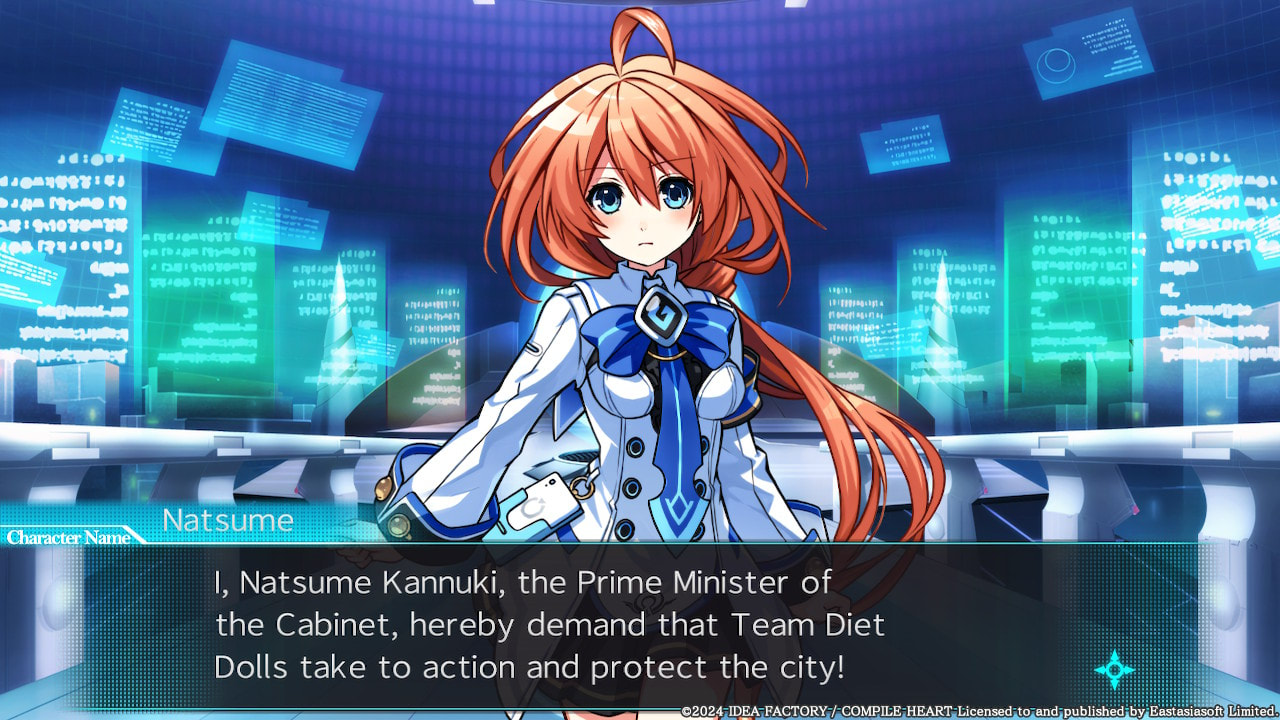
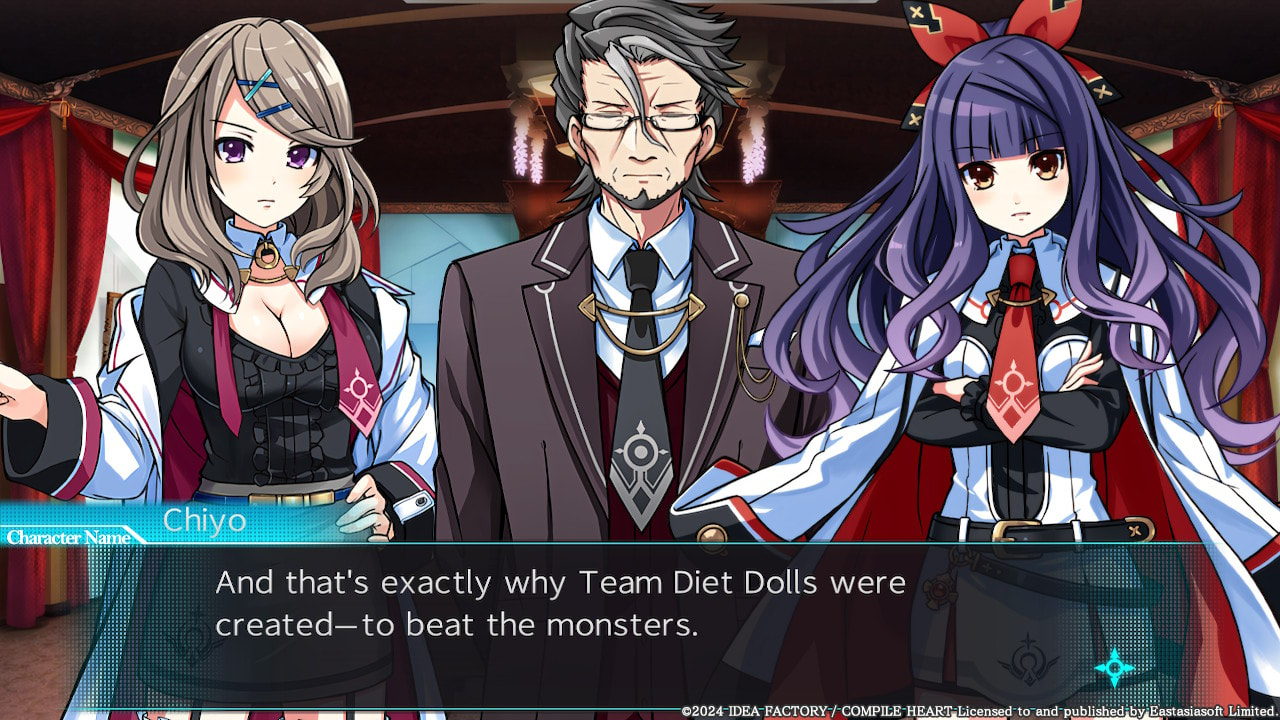
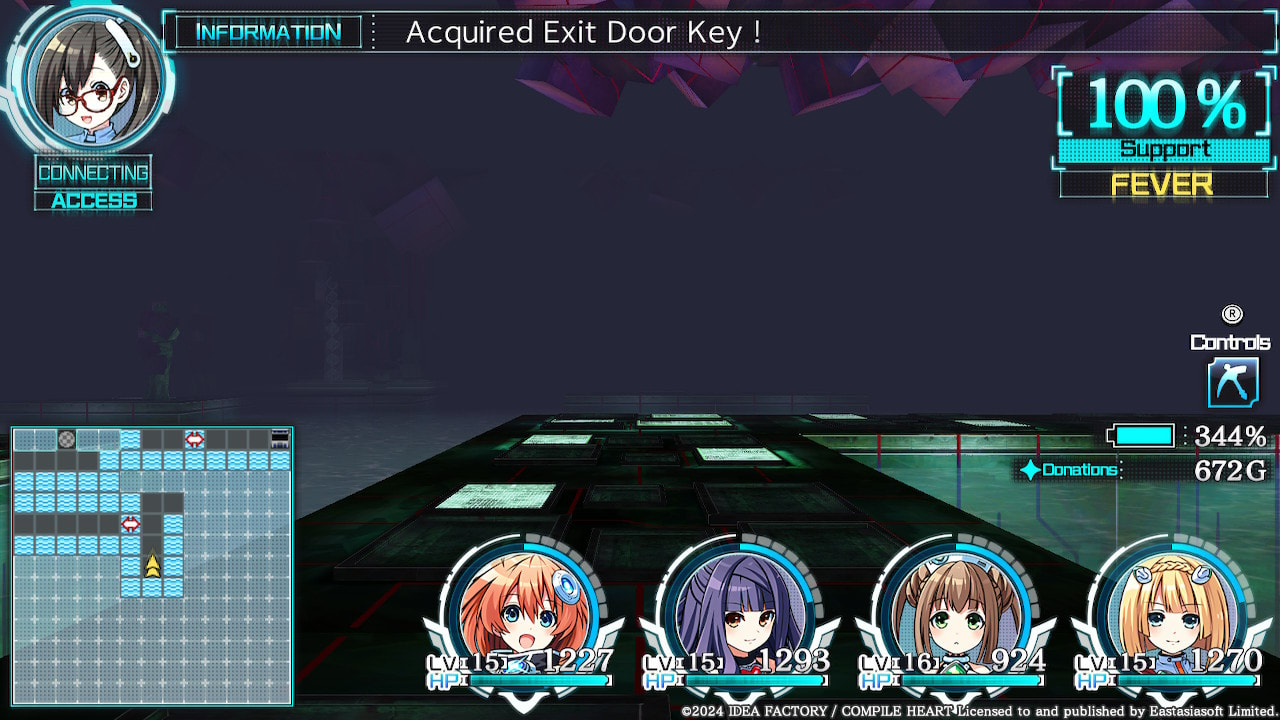
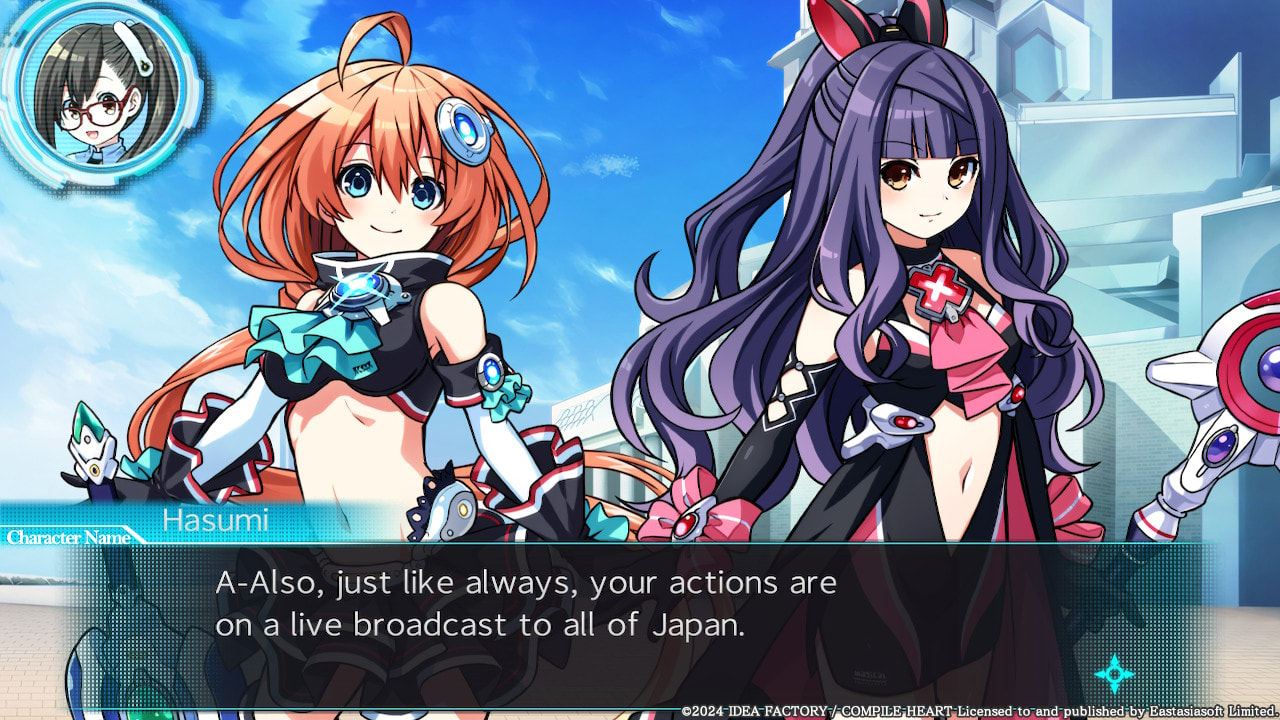
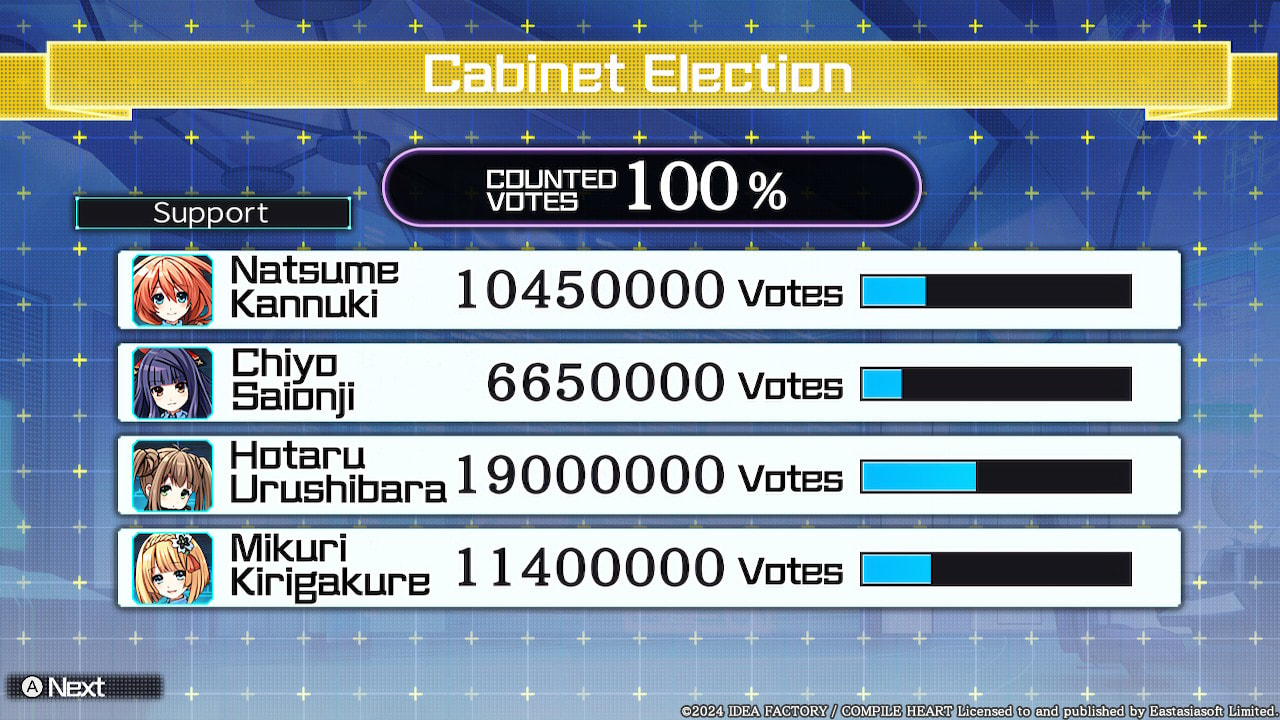
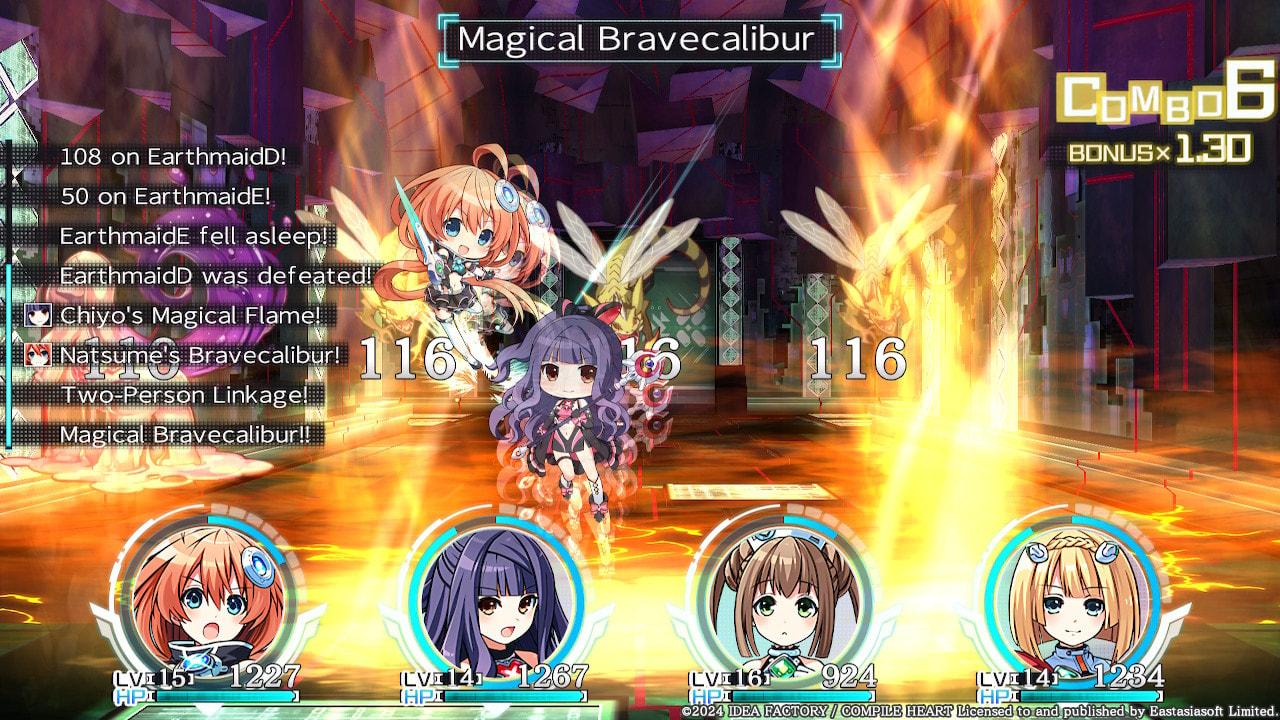
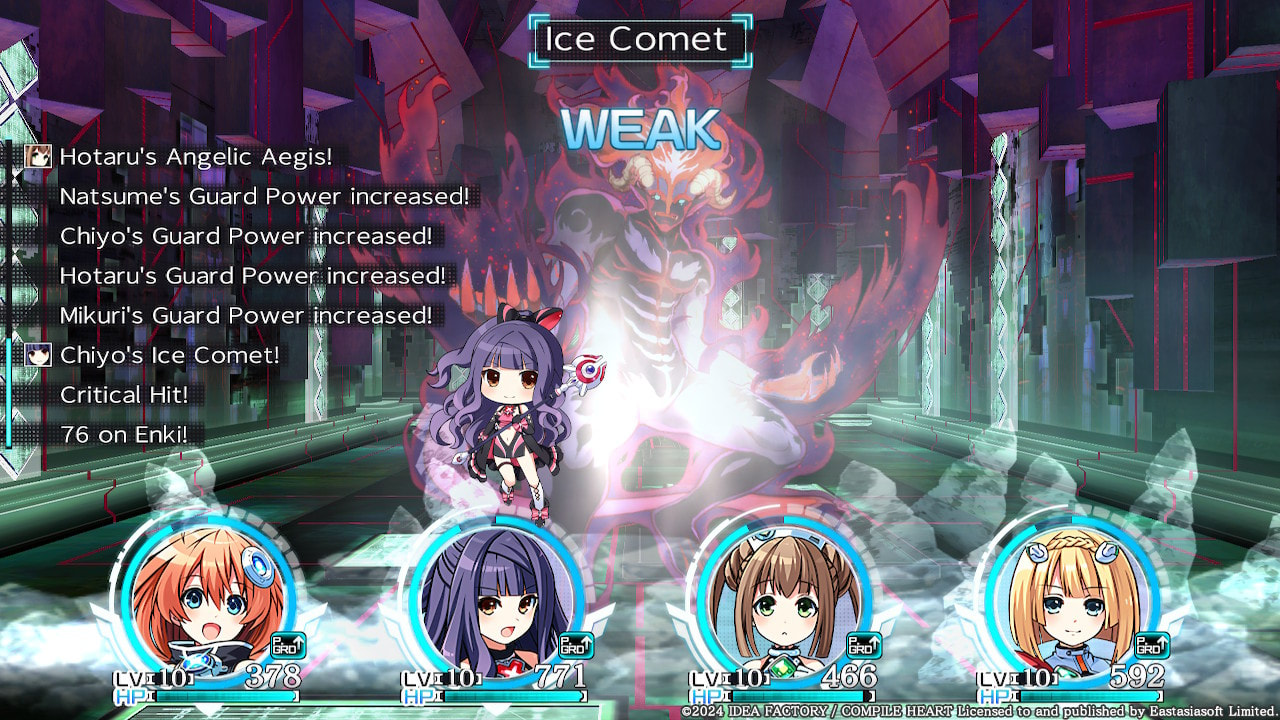
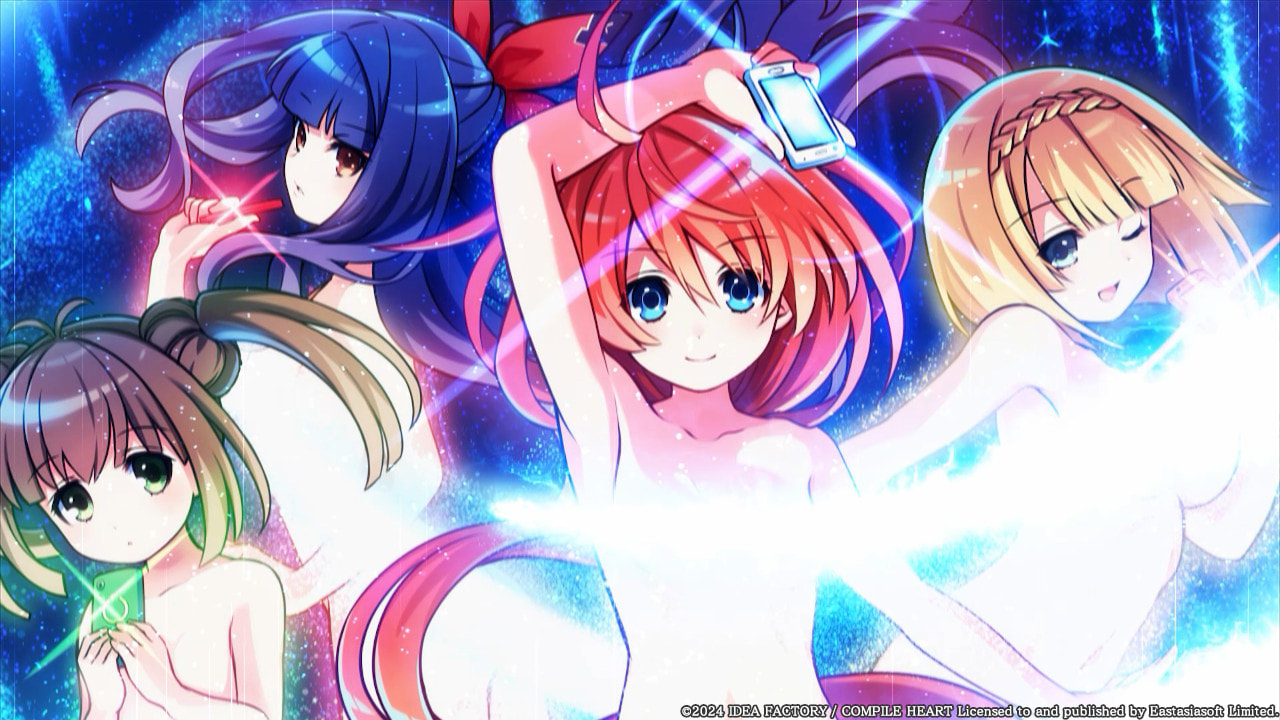
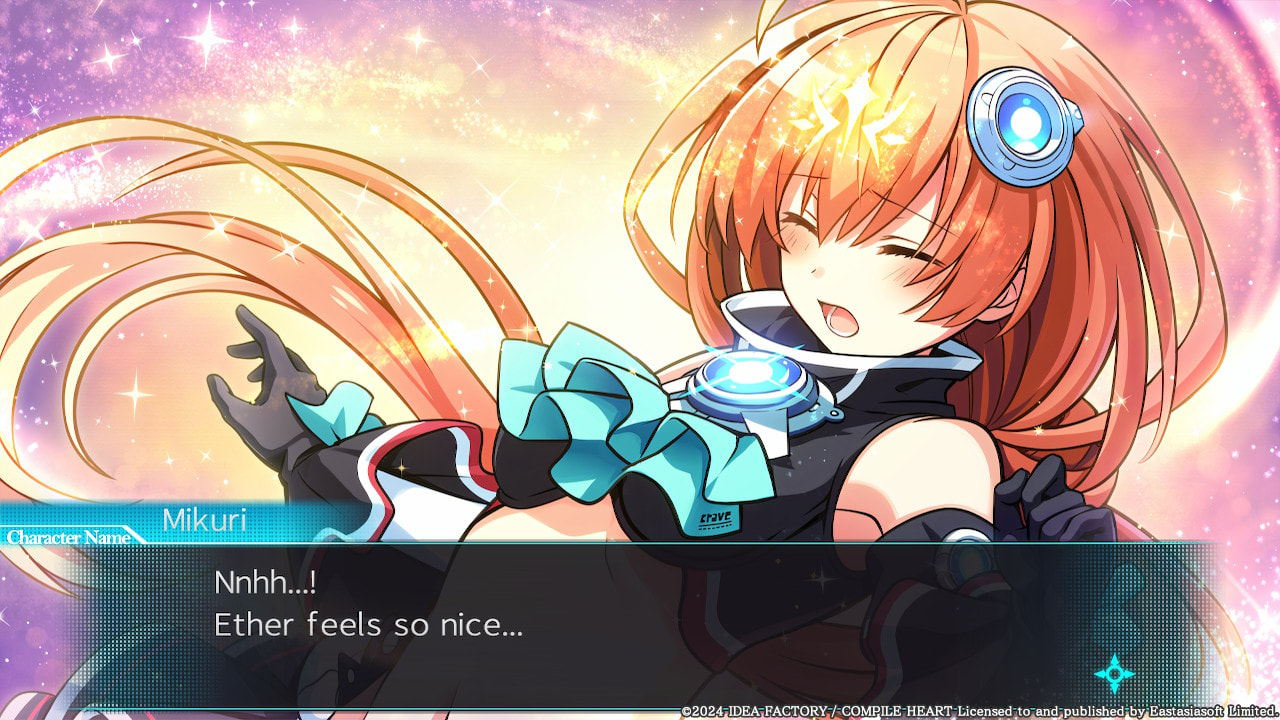
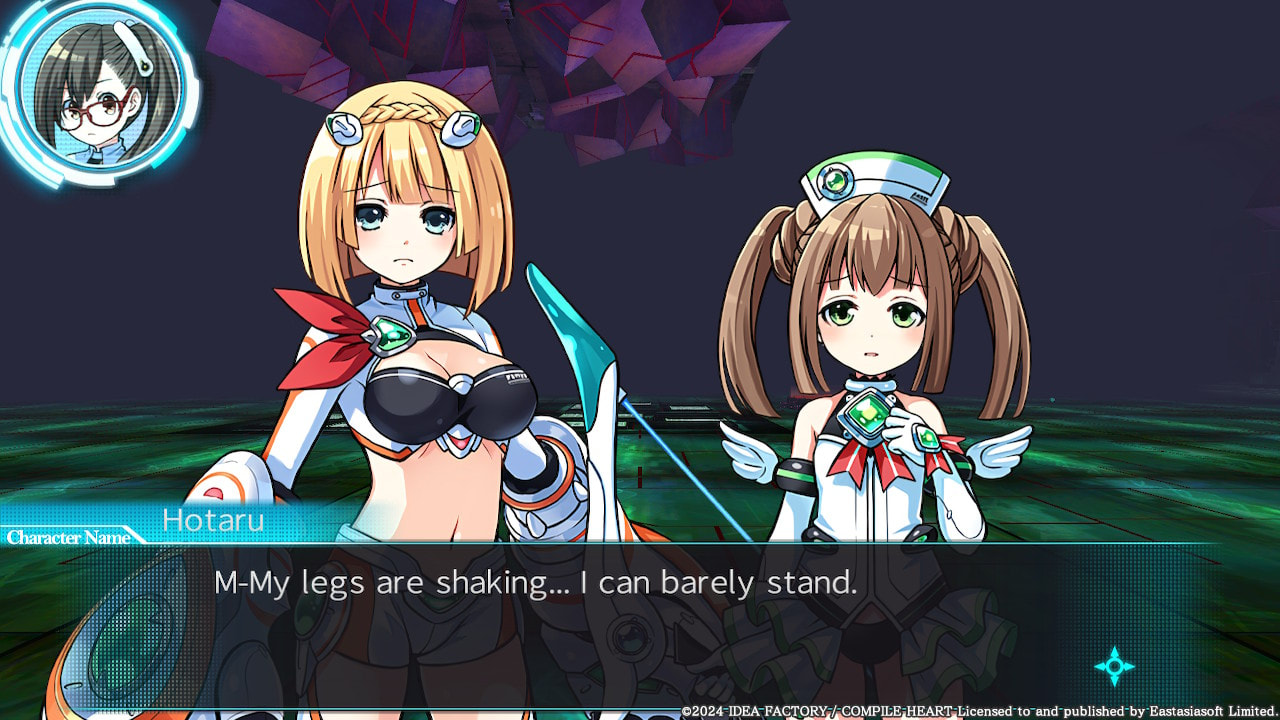
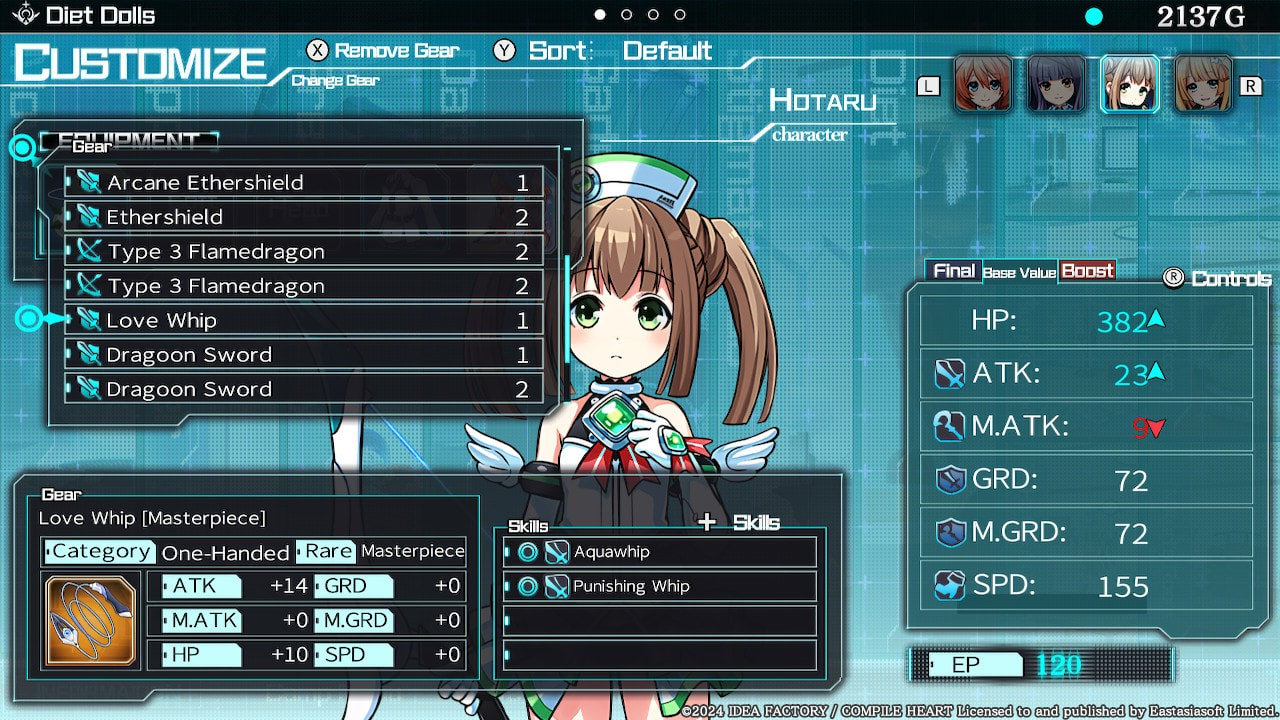
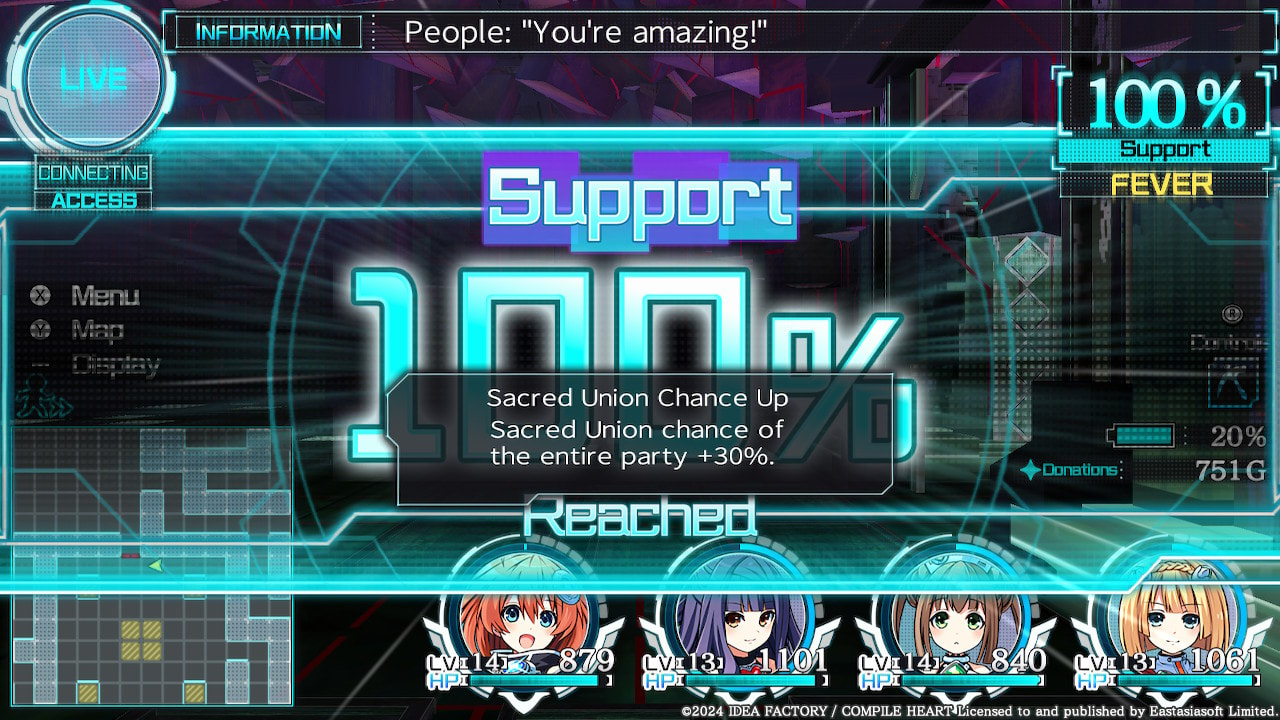
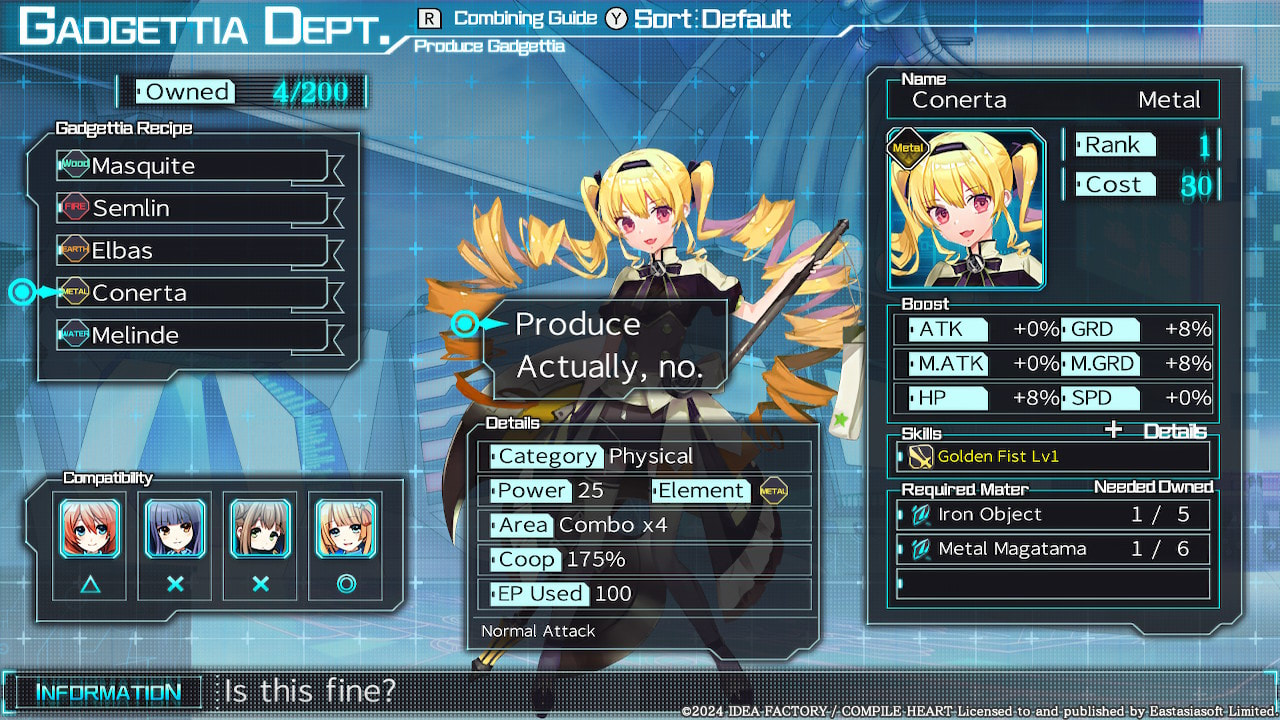
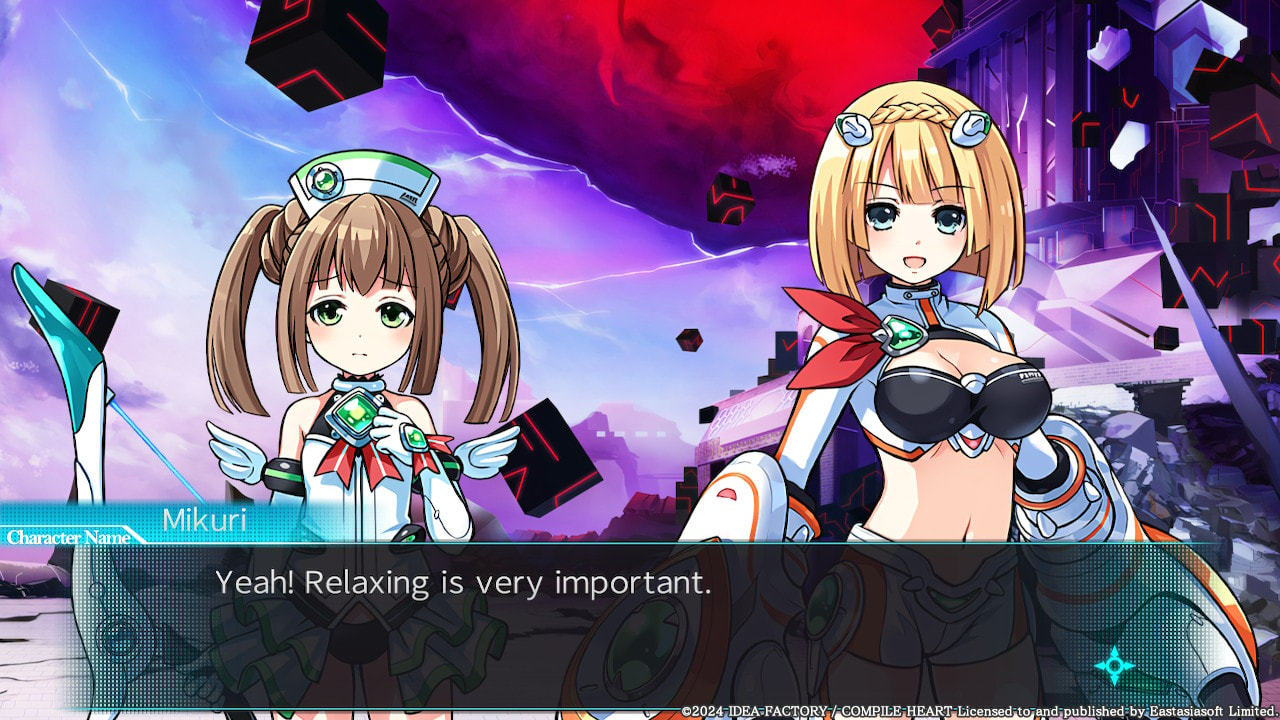
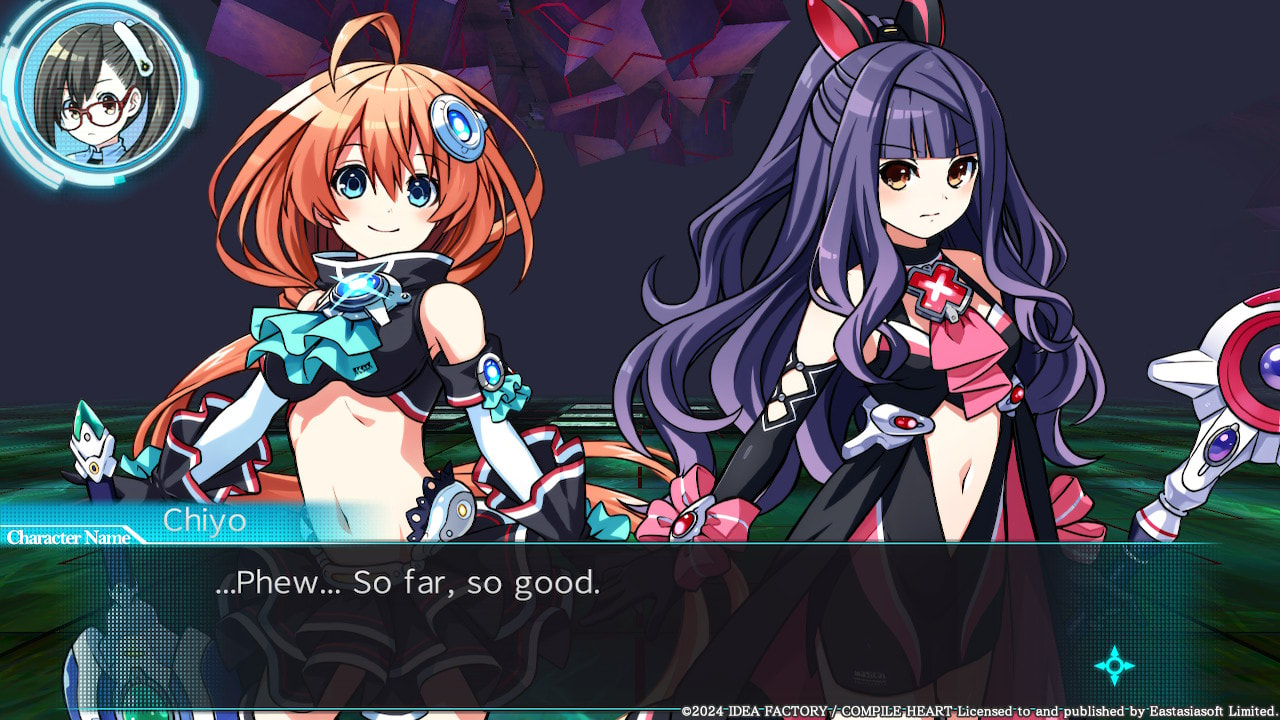
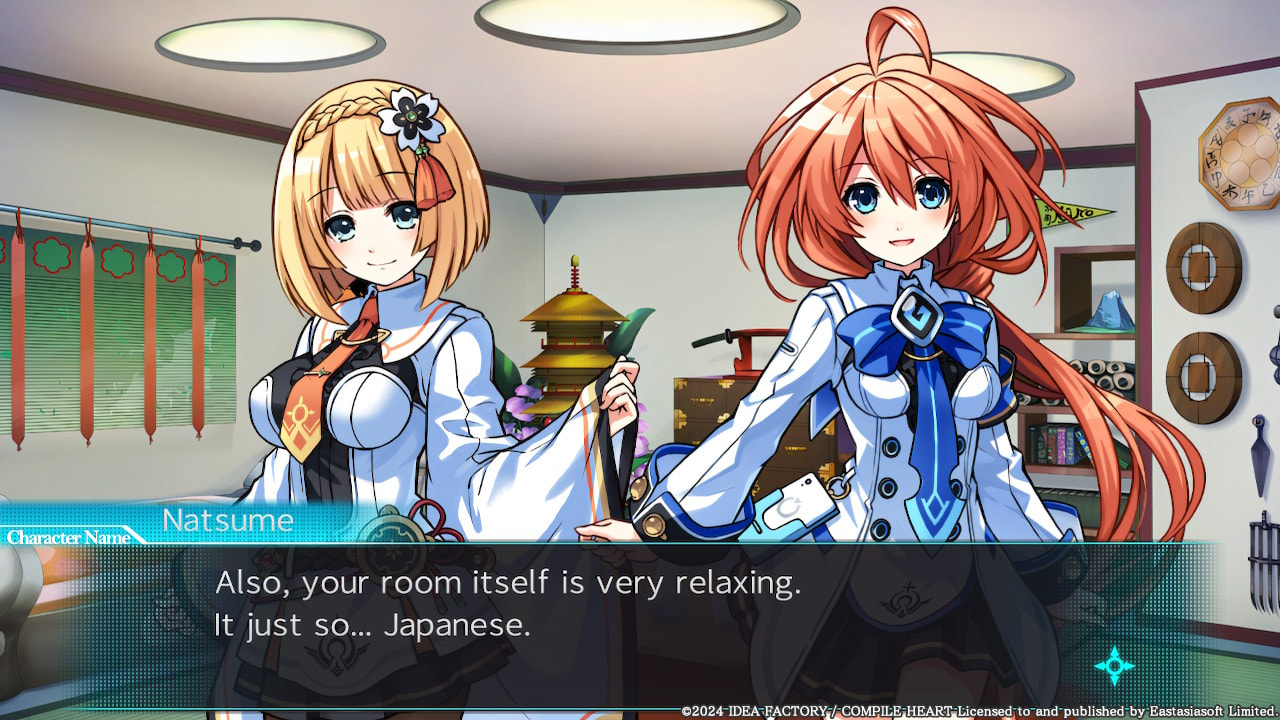
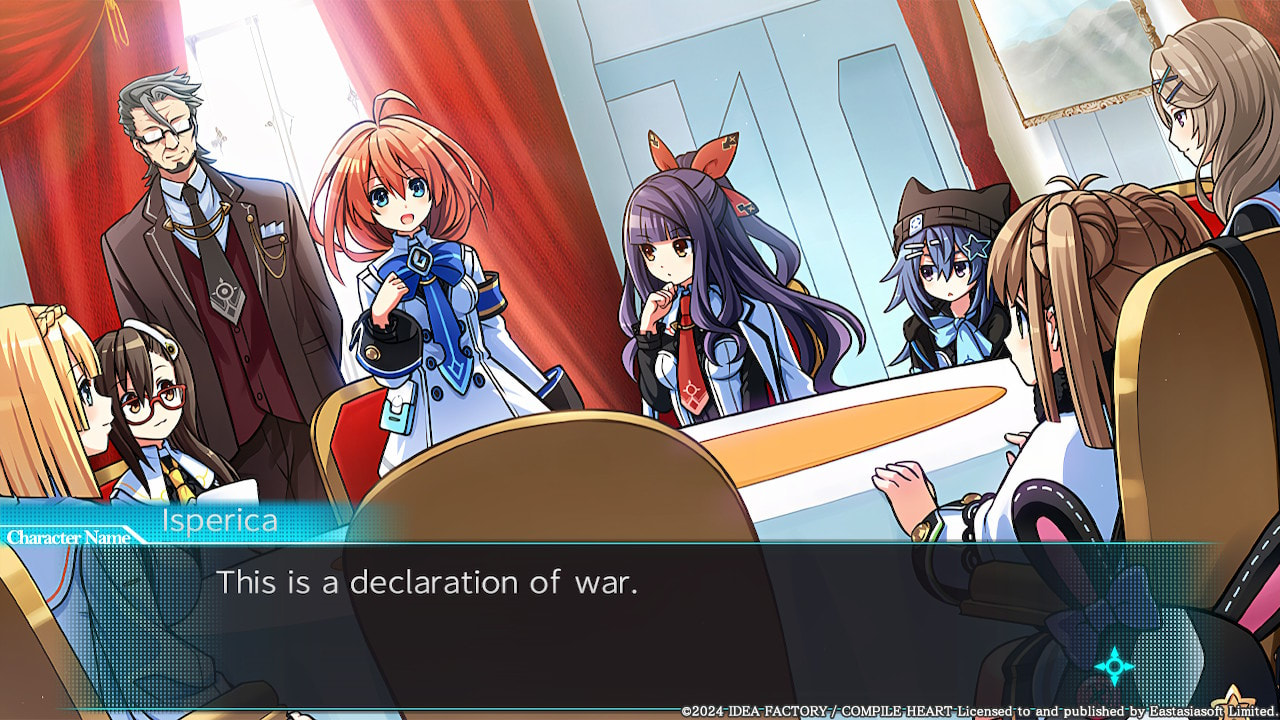
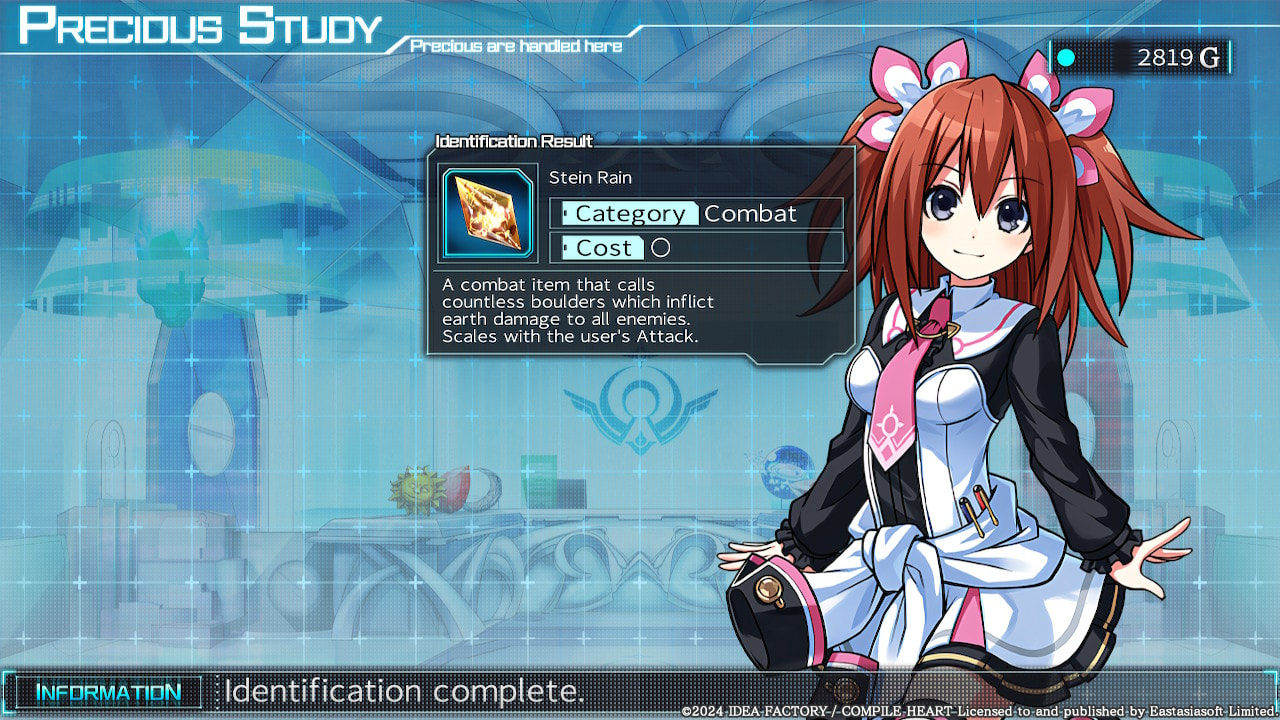

 RSS Feed
RSS Feed